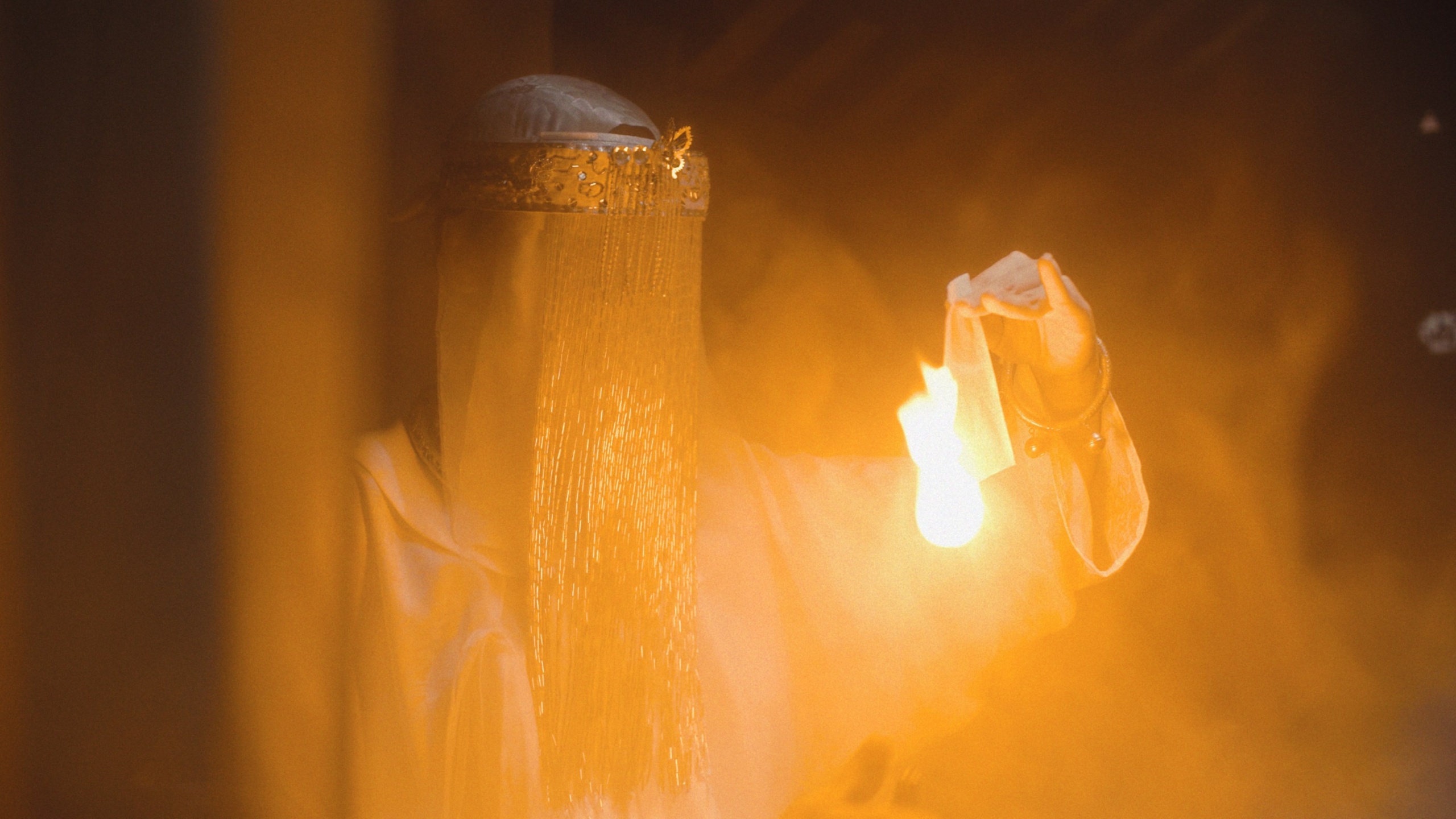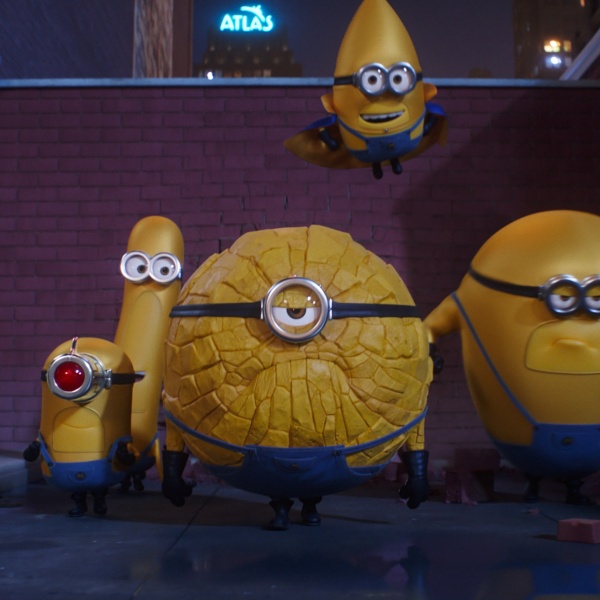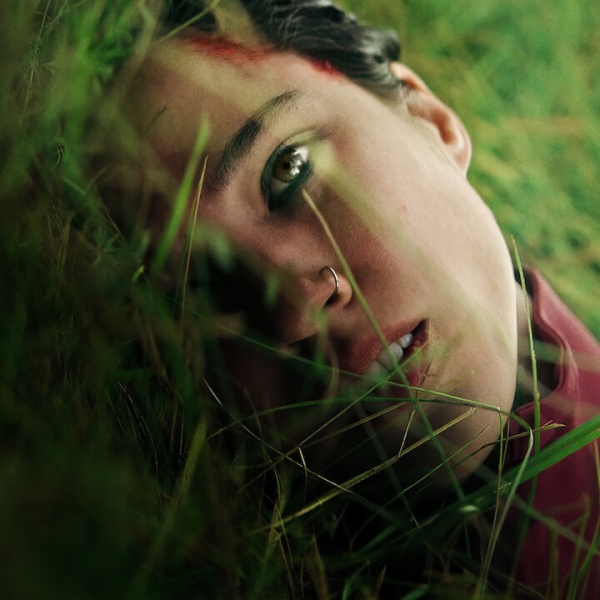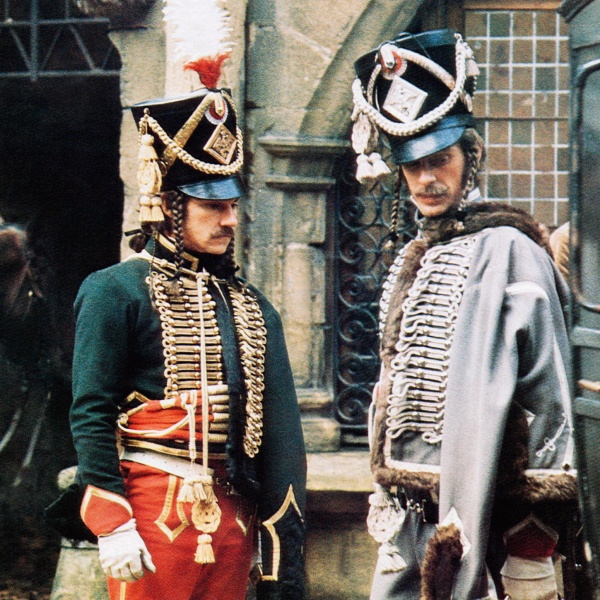A horror-tinged tale of superstition and dwelling in rose-tinted fantasies, “Don’t Cry, Butterfly” announces its magical realist leanings through one of the scarier means of humiliation: having your dirty laundry broadcast for the whole nation to hear. Sort of. Early in the film, middle-aged Tam (Le Tu Oanh), a wedding venue staffer, is suddenly stopped on her drive home from work one night by her daughter, Ha (Nguyen Nam Linh), with both women traversing the streets of Hanoi on mopeds. As the people around them watch the Vietnamese national team compete in a crucial soccer match, Ha asks her mother if she’s okay and then asks for her phone. It shows that Tam’s husband and Ha’s father was present at the match with another woman, his apparent infidelity caught on camera.
Initially speaking on the progress of the game, the soccer commentator, overheard from the TV at the bar by which Tam and Ha are positioned with their scooters, switches his observations from the match to instead address what Tam is experiencing: “It seems that there is a mortifying secret hidden inside that phone. I can see a complex mix of emotions on her face. The cat is out of the bag just like how the truth always comes to light. Question is, can our heroine withstand the cruel turn of fate?” The implication is that the nearby watchers of the match can still hear the real soccer commentary going on, as no one strays their eyes from the television screens to observe Tam and Ha. Those extras go wild as the commentator seemingly switches back to chatting about soccer, although his enthusiastic cry of “Goal!” is quickly followed by, “Yes! She’s officially cuckolded!”
Strange things that only some people can hear or see are recurring components of writer/director Duong Dieu Linh’s high-energy, vividly surreal debut feature, which playfully probes topics of marriage, mother-daughter relationships and troublesome barriers of communication with nuance and wit. Chief among the elusive sights are leaks in an apartment building that only women can see. Tam’s unfaithful husband Thanh (Le Vu Long) can’t see the gradually spreading stain on the ceiling of the bedroom he shares with his wife, nor can the male landlord who comes to inspect their apartment after women on other floors report similar leakage.
Not that Thanh would speak up if that suddenly changed, the character being effectively mute for almost the entire runtime; wandering into frame and being the subject of many discussions, but rarely contributing anything to proceedings. Reflecting the deterioration of Thanh’s marriage, Long even seems to move at a slower pace than his female co-stars in a given scene. It’s less like a staggering zombie and more as though he’s a ghost on a time delay as he enters the realm of the living.
Meanwhile, on the ceiling, that growing stain that only the women can see seems to host a genuine spirit, one which eventually transforms into an organic creature reminiscent of a more watery, jet-black version of The Blob. Whether or not its origins are connected to the marital woes, Tam’s actions in response to Thanh’s apparent infidelity only serve to accelerate the entity’s activity. Much to Ha’s frustration (“Why hasn’t my mom burnt down the house yet? If it were up to me, things would have run amok by now”), Tam ignores having any conversations about the matter. Instead, she dives down a social media rabbit hole that leads her to visit a feng shui master. Assessing that Tam lives a life filled with loneliness and suffering, where her hard work only ever benefits others, the master performs a fate-changing ritual.
This attempted quick fix for her problems, instead of having honest conversations, shirks Tam of her responsibility to properly address her emotions and relationships, while also having butterfly effects on the household, leading to the frustrated wife resorting to further incantations from the feng shui master. One binding spell involves trying to keep Ha, who’s aged 20, tied to the home after she reveals that she’s secretly applied to study abroad in Europe. Often shown hanging out with neighboring friend Trong (Bui Thac Phong), Ha has long felt that something is off with her parents’ marriage, and also grapples with the belief that they would have preferred a son — Nguyen Nam Linh’s pixie cut and androgynous outfits worn throughout the film suggest an element of Ha possibly trying to compensate for this perceived disappointment.
In planning to escape the suffocating environment, Ha’s idealism proves as naive as the ways in which she views how her mother approaches life. Her friend Trong is clearly depressed about a number of things, including abandonment by his own estranged mother, who followed a ballet dancer career path that Ha openly discusses venturing down herself. Ha and Trong talk more candidly than her parents (any brewing romantic interest between the younger characters is never made too explicit), but it’s a relationship where one party doesn’t realize, until it’s too late, that they’re basically telling the other what to think; planning a life together, as friends studying abroad, without determining whether or not Trong actually wants to leave Vietnam.
Early in the film, Ha speaks of how she’ll help Trong find a “blonde chick” in Europe, one with “blue eyes, big boobs and [a] bouncy ass.” He decries her perception of him having “such mediocre taste,” yet this imagined blonde continues to come up in Ha’s discussed escapist fantasies. Like her mother with her disastrous use of voodoo to control the destinies of her family unit, Ha too falls into a trap of really only thinking of others as accessories to her own wants, despite believing that this comes from a place of love.
As may have become evident in this review, Linh employs the film’s creature-feature elements sparingly, with little interest in horror-movie scares outside of a select few sequences best left unspoiled — though if you were wondering if the ceiling blob might get involved with certain bedroom activities, you can safely buy a ticket, you freak. When “Don’t Cry, Butterfly” gets even more fantastical in its final stretch (including a water-based set piece that’s oddly reminiscent of “Jumanji”), something of its magic is actually lost a tad, though the abstract climax may reward repeat viewings. What never falters is Linh’s prowess as a creator of indelible images right away with her debut feature (though following a few shorts), making her another very exciting artist to watch amidst a real boom period for Vietnamese cinema on the international stage (“Inside the Yellow Cocoon Shell” and “Viet and Nam”, among others). All too appropriately for its story, “Don’t Cry, Butterfly” is often truly spellbinding.
Grade: B
“Don’t Cry, Butterfly” world premiered at the 2024 Venice Film Festival. It is currently seeking U.S. distribution
Want to stay up to date on IndieWire’s film reviews and critical thoughts? Subscribe here to our newly launched newsletter, In Review by David Ehrlich, in which our Chief Film Critic and Head Reviews Editor rounds up the best reviews, streaming picks, and offers some new musings, all only available to subscribers.





